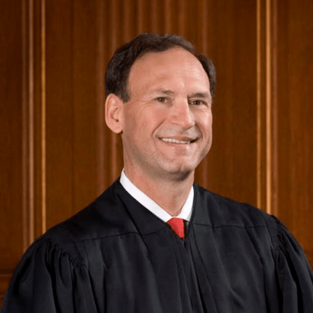On being cited by the Supreme Court
- Richard F. Hamm
- Jan 16, 2020
- 3 min read
Updated: Aug 29, 2023
Editor’s Note: Today’s post comes from Richard F. Hamm, Professor of History at the University at Albany, SUNY. He is with Michael Lewis co-editor of the forthcoming Prohibition’s Greatest Myths (LSU Press, forthcoming April 2020), which has an essay by Thomas Pegram, who is also cited in Alito’s opinion in the Tennessee case.
So, in late June of this year, I was reading a United States Supreme Court case. Not something unusual for me, as I am legal historian as well as a historian of alcohol policy. Actually what I was reading was the “slip opinion” which used to be the unbound just-off –the-press opinions of the justices, available before the volume of the United States Reports in which the case would be included was compiled and printed. Today they are available on the internet.

The case is one that would interest readers of this blog: it is Tennessee Wine v. Thomas and it concerns how far the second clause of the 21st amendment will reach. The readers of this blog will know that amendment’s first section repealed the 18th amendment, formally ending national alcohol prohibition in the United States. What only a few of you know is that its second section gives states broad powers to regulate alcohol. Based on an important pre-prohibition federal law, the 1913 Webb-Kenyon Act, it reads: “The transportation or importation into any State, Territory, or possession of the United States for delivery or use therein of intoxicating liquors, in violation of the laws thereof, is hereby prohibited.” And there as I was reading the dense prose of Justice Samuel Alito for the majority of seven justices, I came across my name and a citation to my first book, Shaping the Eighteenth Amendment (UNC Press, 1995). It’s right there on page 14 and again on page 17, as part of the long discussion of the relationship between the federal government’s commerce power and state alcohol policy.
Also among the references is another case, Granholm v. Heald, from 2005. That is not surprising as this case also turned on the question of the scope of the 21st Amendment. And without a doubt the Tennessee case builds on the ideas developed by Justice Anthony Kennedy, for a narrow majority of five, in that case. My work was cited in that case also. But what is funny about that is that my work – the same work — was cited in one of the dissents by Justice Clarence Thomas. Thomas, by the way, joined the dissent in the Tennessee case, written by Justice Neil Gorsuch. The first case limited the states from prohibiting internet wine sales from out of the state and the second said that the states could not require that those who wished to run retail liquor stores in the case meet stringent residency requirements. Both were held to violate the federal government’s power to regulate interstate commerce despite the language of the 21st Amendment.
Justices Alito and Thomas
So, why did my work end up being cited by both the majority and minority in cases dealing with the 21st Amendment? The answer comes in two parts. First, mine is one of the few works that examines the interaction of state and federal power over alcohol, though it does so for the period before national prohibition. Second, both Thomas’s dissent and Alito’s majority opinions are based on what they argue are “original understandings” of the 21st Amendment. So both use my work to bolster their “history.”
In both cases, however, they do not cite (and probably don’t even know about) my later work, which examines the case law about the 21st Amendment (an essay in David Kyvig’s Unintended Consequences of Constitutional Amendments [Georgia 2000]). In that essay I show how the expansion of the federal commerce power after the New Deal shifted the Court’s holdings in 21st Amendment cases from recognizing a broad power to a limited one. To me it was the logical conclusion from my earlier work, but not one that the Originalists on the Court would welcome.
I mention these two citations not to toot my own horn, but rather to make a point to those of us who do scholarship that has public policy implications. And that is what you produce is available for all in the policy making realm to use, as they see fit. It’s a sobering lesson.




